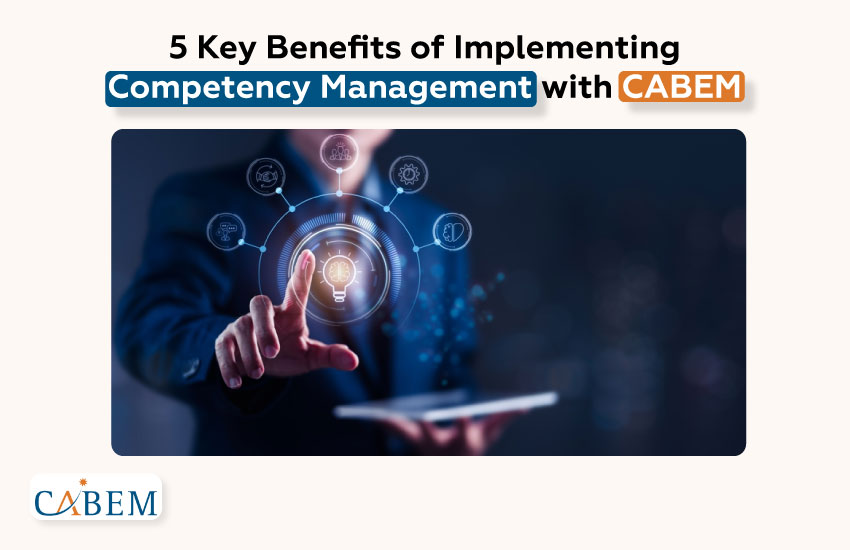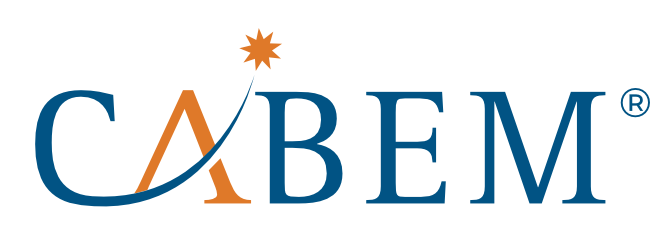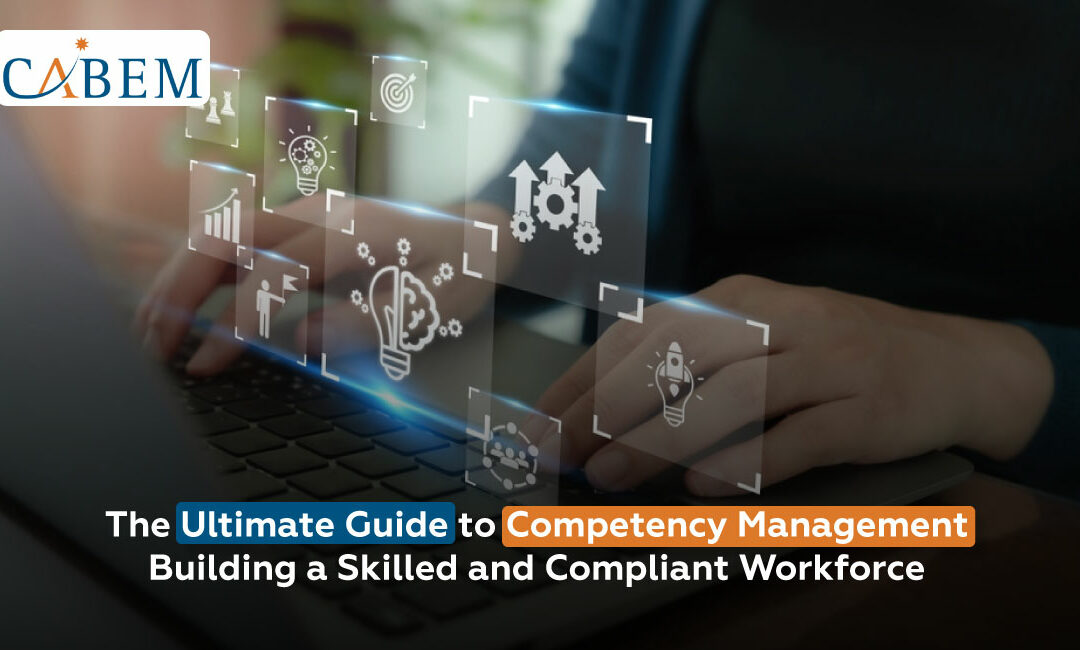Due to continuously evolving technology and changing market demands, companies are facing skill shortages. According to the McKinsey report, approximately 87% of companies worldwide are experiencing a skill gap now or may experience one in the future. A clear strategy is highly needed to address this issue and avoid low productivity due to low efficiency.
As businesses across the world are grappling with strict regulatory standards, they need more specialized roles that the traditional training system fails to provide. The old method of training employees is no longer sufficient to cope with the rapidly changing, fast-paced environment of organizations all over the world. Companies now need a system that can build role-specific competency along with tracking training progress.
This is the point where the competency management tool plays its role. It is more than just a training monitor that can align employees’ competency, processes, and performance. CABEM’s Competency Manager sets itself apart when it comes to the best competency management software. It provides a strategic approach to developing the workforce that is resilient and always ready for future challenges and opportunities.

What is Competency Management?
Competency management is a process that is used to align the capabilities of the workforce with the required skills. It fills the skill gap by tracking and improving the employee’s progress on the defined goals. It ensures that people have the right skills, not just on paper but in practice, which ultimately boosts productivity and helps in resolving any compliance issues.
- Core Elements: Competency management normally involves three core elements, which are role definition, the required skill level, and the necessary training strategy that provides a structured framework for talent development.
- Skills Tracking: Competency management helps the organization’s leadership to continuously monitor the progress of employees. The management can allocate the position to the person with the most aligned competency level.
- Assessments: Competency management assesses employees’ abilities against the standards through a formal assessment system, like digital quizzes, exams, peer reviews, or sometimes an automated testing and verification system.
- Compliance Monitoring: In most of the regulated industries, the record of staff training and certification is required to match the industry standards. Competency management helps to perform this task easily by automating the compliance tracking process.
- Gap Analysis: The main feature of the competency management system is that it identifies skill gaps early, before they become costly problems for the organization. It shows where the skills of the employee fall short and the areas where further improvements can be made.

Why Competency Management is Essential in 2025
The modern needs of the world have changed the way we work. The new work models, like remote and hybrid working, increase the need that employees should be competent in their skills to remain productive and increase the growth of the company. The competency management is more critical now than before because of its centralized system of evaluating and maintaining the skills across the department of the organization.
In the highly regulated industries, the pressure from regulatory bodies is increasing to maintain the standards and prove workforce complies with these standards. Reputation management is also necessary in the market to stay competitive and to avoid business disruptions. The real-time proof of employees’ qualification and the provided training is highly demanded by the regulatory bodies. Competency management tools like CABEM’s Competency Manager are most helpful in performing this stressful task. It automates the process of identifying skill gaps and continuously monitors the progress made by an employee.
The financial and operational cost of failing to meet the regulatory standards is far more than just fines. It causes project delays and reputational damage, and often safety incidents. The businesses lose their turnover and face low productivity. CABEM’s Competency Manager can save your organization from facing these hectic issues and provide you with stress-free solutions to manage the competency of your team.

How CABEM’s Competency Manager Solves These Challenges
CABEM’s Competency Manager is purposely built to offer a comprehensive solution to manage the problem of work skills, compliance with industry standards, and audit preparation. The centralized system of this platform makes managing skills and audit preparation a seamless process, especially for industries where the environment is fast-paced.
Custom Role & Competency Mapping:
CABEM offers tailored and role-specific competencies according to each position. This makes sure that employees improve their competency according to the standards. In this way, the ambiguity is reduced.
Centralized Tracking:
All the records of training completion, certifications, and qualifications are stored in one intuitive system, which is accessible all the time and helps in making real-time decisions. This approach enhances the transparency and eliminates biased decisions.
Automated Assessments:
The CABEM’s Competency Manager is equipped with built-in tools that automate the assessment process and give alerts and reminders. This reduces the burden and responsibility on the administrative departments of the organizations.
Skill Gap Identification:
Once you provide the data of the employee’s current skills and qualifications, the tools can automatically identify the skill gap by comparing the given data with regulatory standards. It also provides a strategic approach to fill the void in skills.
Audit-Ready Reports:
The competency manager can generate automated, audit-ready reports with one click, as it has all the ready-made templates in it. It uses standard templates, which ensures that information flow is consistent.

5 Key Benefits of Implementing Competency Management with CABEM
The key feature that makes CABEM’s Competency Manager the best choice is that it is especially built for this purpose. It is more capable, compliant, and cost-effective than other tools available in the market.
Below, you can find some valid benefits that you will get by choosing CABEM’s competency tool.
- Improved Workforce Performance
- Reduced Compliance Risk
- Scalable Onboarding and Training
- Higher Employee Retention
- Reduced Training and Audit Costs
1. Improved Workforce Performance
It is the right tool that guides employees on what to do and what is expected of them. This guidance eliminates the confusion and produces great results. It improved the performance of the workforce by providing them with all the necessary skills, which ultimately enhances their performance.
2. Reduced Compliance Risk
CABEM makes sure that all the certifications and trainings are according to the regulatory standards, which minimizes risks related to compliance standards. The automated system of generating an audit-ready report makes it easier to always be ready for a quick audit.
3. Scalable Onboarding and Training
The structured learning paths of this platform support new hiring, whether they are hundreds or thousands. In this way, it makes sure that every employee receives the desired competency regardless of their location and department.
4. Higher Employee Retention
When people feel supported and they have a clear path to learn new skills, and see their career growth, they become more loyal and engaged with the organization. This increases the retention rate and recognition.
5. Reduced Training and Audit Costs
The automated system of this tool eliminates several people to manage all the documentation manually. It reduces the cost of training and skill development budget. Organizations can save time and money by using CABEM’s Competency Manager.

Building a Competency Culture, Not Just a System
Implementing a competency management system is not like installing the software, it’s all about the development of an environment in your organization that values continuous learning. Make sure the team just does not worry about completing the training, but they strive for a performance-driven environment.
Here are some cultural values you must develop in your organization, along with competency development.
- Beyond Compliance—Striving for Organizational Excellence: The real purpose of competency development is not meeting the regulatory standards, but it is a key framework that is used to drive quality and performance.
- Giving Employees Clear Expectations: A clear understanding of competency builds trust in the organization, and employees show more engagement and take self-directed steps.
- Making Metrics Meaningful: CABEM’s Competency Manager collects the data and produces valuable insights that can be used to make an informed decision.
- Fostering a Growth and Accountability Mindset: The accountability-rooted culture makes employees feel responsible for their contribution. This makes a shift from task-based thinking to purpose-driven thinking.

Why Choose CABEM’s Competency Manager?
CABEM is highly reputable in regulated industries with a proven track record of providing a competency management system that is more reliable and powerful than any tool available in the market. It is not just software, but a strategic approach toward the development of a future-ready workforce.
Here are some reasons that make CABEM your first choice:
- 20+ years of experience in providing competency solutions for highly regulated complex industries.
- CABEM is trusted by government institutions, hospitals, manufacturers, and other industries because of its high standard in meeting compliance.
- Fully Customizable platform that is adaptable to any organization’s unique structure.
- The ongoing feature development will not leave you behind. The platform is continuously improved according to the responses from our users.
FAQ’s
Why do we need competency development?
Competency development ensures that every employee has the skills and knowledge required by the role to work effectively. It boosts productivity by closing the skill gap.
Why is the competency concept considered a modern management concept?
Competency-based management values adaptability and measurable results that align with strategic business goals. It promotes continuous improvement and a forward-thinking approach.
How is competency management helpful at all levels of an organization?
Competency management ensures compliance at all levels, from entry-level staff to executives, and it provides clarity on expectations from all roles.
What is the purpose of competency management?
The main goal of competency management is to find skill gaps and provide necessary training to fill them. It improves the organization’s productivity and boosts growth.

